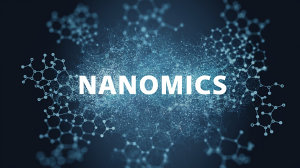Nanomics: The Recursive Framework of Nanoscale Systems
About this ebook
Derived from the Greek words "nano-" (νᾶνος, meaning "dwarf") and "-nomics" (νόμος, meaning "law or system"), Nanomics** functions as a self-optimizing intelligence** that spans physics, computation, chemistry, engineering, and medicine. Unlike conventional nanotechnology, which focuses primarily on material manipulation, Nanomics extends into a recursive, self-enhancing architecture, allowing nanoscale systems to adapt, evolve, and optimize themselves over time.
This groundbreaking framework pioneers novel methodologies for atomic-scale engineering, enabling innovations such as smart materials, advanced medical treatments, and next-generation computing systems that continuously refine their own performance. By applying recursive intelligence at the nanoscale, Nanomics bridges the gap between theoretical science and applied technology, setting the foundation for a new era in physics, medicine, and computational systems. As we step into the next frontier of scientific advancement, Nanomics reveals that within the infinitesimal lies the potential for boundless innovation.
About the author
Ronald Legarski is a pioneering researcher and theorist dedicated to exploring the recursive intelligence of nanoscale systems. As the creator of Nanomics, he introduces a self-optimizing framework that redefines atomic-scale engineering, nanotechnology, and systemic intelligence. His work integrates principles from physics, computation, chemistry, and medicine, demonstrating how recursive optimization can transform material science, medicine, and computing. By positioning Nanomics as the governing framework for nanoscale self-regulation, Legarski’s research paves the way for next-generation smart materials, adaptive medical treatments, and self-improving computational architectures, unlocking the limitless potential of nanoscale innovation.







